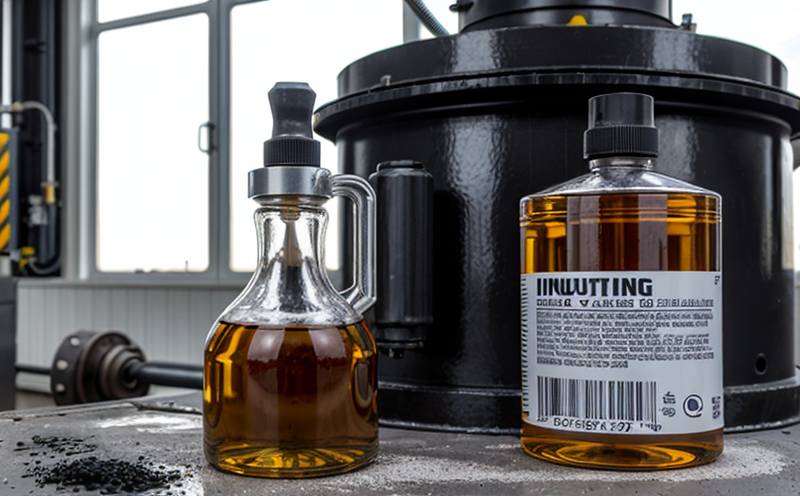ASTM D97 Pour Point Testing of Industrial Oils
The pour point is a critical property that determines when an oil will begin to flow at low temperatures. This test, outlined in ASTM D97, is essential for industrial oils as it ensures the product's performance under cold conditions, which can vary widely depending on application and location. For instance, an engine lubricant used in northern regions needs to pour at higher temperatures than one used in tropical climates.
The ASTM D97 method involves heating a small quantity of oil in a specially designed instrument until it just begins to flow. This temperature is then recorded as the pour point. The pour point is influenced by the type and amount of additives, base oils, and other components present in the industrial oil. Understanding this parameter helps in selecting the correct lubricant for specific environments.
For quality managers responsible for ensuring product compliance with industry standards, ASTM D97 pour point testing provides a reliable method to assess the cold flow properties of industrial oils. This is particularly important when dealing with high-viscosity base oils and additives that can significantly affect the pour point.
R&D engineers rely on this test to develop new formulations that meet both performance expectations and regulatory requirements. The pour point is one of several key parameters used in evaluating a lubricant’s ability to function effectively under cold conditions, which is crucial for engine start-up and overall system reliability.
Compliance officers need accurate results from ASTM D97 testing to ensure their products adhere to industry standards such as ISO 6743-2. This ensures that the oils they produce or source meet the necessary quality benchmarks set by international bodies, thereby protecting their reputation and compliance status.
In terms of procurement, knowing the pour point is vital for specifying the correct lubricants for various applications. It helps in negotiating with suppliers to ensure they provide products that meet the required performance standards, especially when dealing with cold climate requirements or specific industrial needs.
Applied Standards
| Standard | Description |
|---|---|
| ASTM D97-18 | The standard test method for pour point of petroleum products. |
| ISO 3016:2009 | Equivalent international standard for determining the pour point of petroleum products. |
The ASTM D97-18 standard specifies the procedure for determining the pour point of petroleum oils and oil blends. This test is particularly useful in assessing how well a lubricant will perform at sub-zero temperatures, which can be critical for industrial applications where machinery must operate reliably across varying climates.
Industry Applications
- Engine Lubrication: Ensures proper engine operation and protection during cold starts in harsh winter conditions.
- Mining Operations: Guarantees that hydraulic systems function correctly even when temperatures drop significantly at night or after heavy rain.
- Agricultural Machinery: Helps maintain equipment integrity by ensuring lubricants flow freely, preventing damage to critical moving parts.
The pour point is crucial for industrial operations where machinery must perform effectively in cold climates. By understanding the pour point of their lubricants, operators can select products that meet or exceed performance expectations under cold conditions. This not only enhances operational efficiency but also extends the lifespan of equipment by protecting against wear and tear caused by poor lubrication.
Eurolab Advantages
At Eurolab, we pride ourselves on providing accurate and reliable ASTM D97 pour point testing services. Our state-of-the-art laboratories are equipped with the latest equipment to ensure precise measurements that meet or exceed industry standards.
- Expertise: Our team of experienced professionals is well-versed in ASTM D97 procedures, ensuring consistent and accurate results.
- Technology: Utilizing advanced instrumentation allows us to deliver high-precision pour point testing.
- Compliance: We ensure all tests comply with the latest ASTM standards, providing you peace of mind regarding product quality and regulatory compliance.
- Speed: Our efficient processes mean faster turnaround times without compromising on accuracy or reliability.
Choose Eurolab for your ASTM D97 pour point testing needs. We offer a comprehensive range of services tailored to meet the specific requirements of quality managers, compliance officers, R&D engineers, and procurement professionals.





